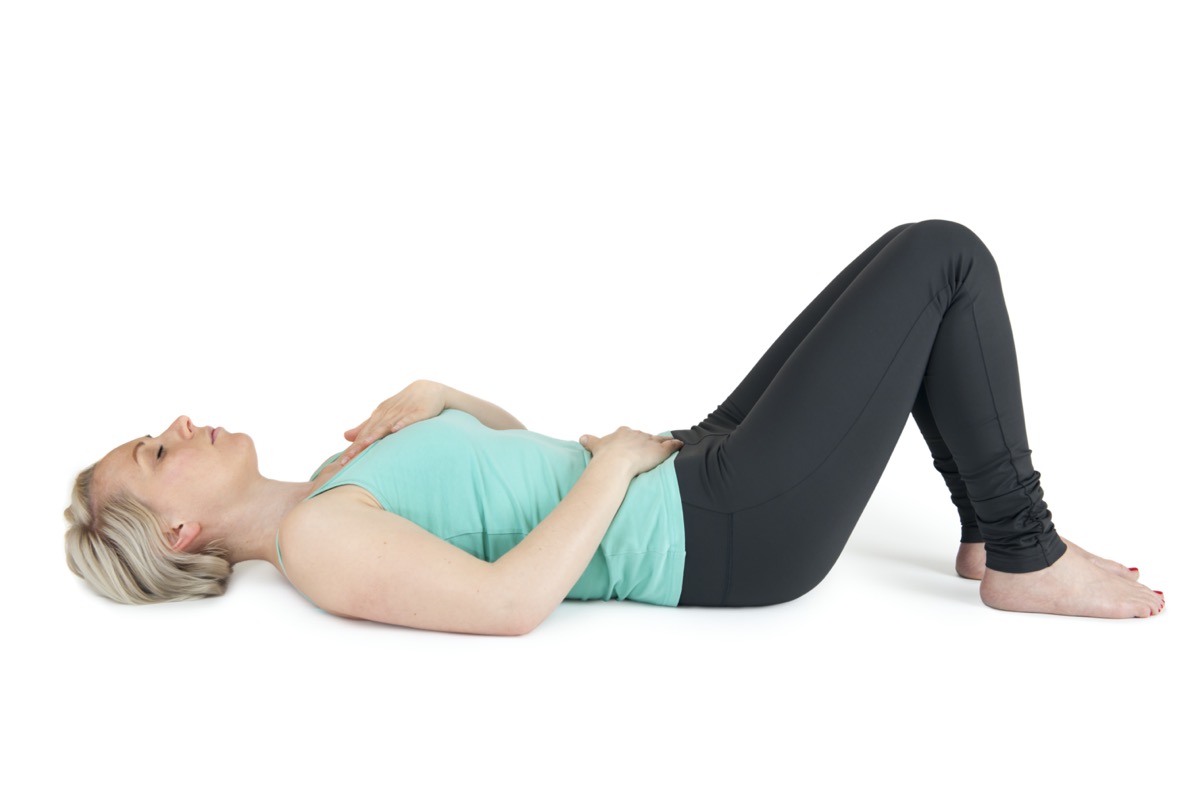The average person takes between 17,280 and 23,040 breaths per day. However, it’s the quality of these breaths that matter, especially when in the midst of the coronavirus pandemic. According to The Washington Post, nasal breathing is better than mouth breathing because it releases nitric oxide, which increases the amount of carbon dioxide (CO2) in your blood and releases more oxygen to your tissues and cells. Mouth breathing, meanwhile, does not release nitric oxide, and therefore leads to feelings of fatigue and anxiety. RELATED: For more up-to-date information, sign up for our daily newsletter. Respiratory therapists often advise diaphragmatic breathing, a lauded meditation technique, to help lower your heart rate, blood pressure, and stress level. This exercise, also called abdominal breathing or belly breathing, involves inhaling through your nose and exhaling through your mouth. According to the Harvard Medical School, to do this, you should lie on your back with your knees bent. (You can do so in bed, on a couch, or on the floor, whichever you prefer.) Place one hand on your chest and the other on your stomach, just below your rib cage, then breathe in slowly through your nose, letting the air drop deep into your belly. If you’re doing this correctly, the hand on your stomach should rise while the one on your chest should stay still. Finally, tighten your abdominal muscles and exhale through pursed lips. At this point, the hand on your stomach should return to its original position. Start by doing this five-minute exercise twice a day, then gradually work up to 10- to 20-minute sessions, to make wearing your mask easier. Paul DiTuro, a performance breathing specialist for PN Medical, told The New York Times that in addition to respiratory training (such as diaphragmatic breathing), you should take five “quality” breaths before and after wearing your mask. For each breath, he recommends inhaling through the nose for four seconds, exhaling through the mouth for six seconds, and resting for two seconds.ae0fcc31ae342fd3a1346ebb1f342fcb Strengthening your respiratory muscles with these simple techniques will make it easier to breathe while wearing a face mask and will also help you relax—something we could all use right now. And for more genius face mask tips, check out This Mind-Blowing Trick Will Make Your Face Mask So Much Safer.
